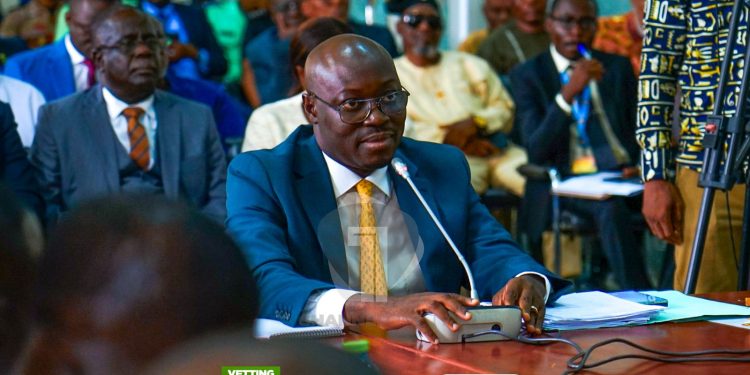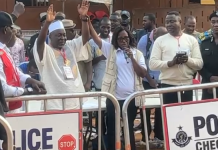Celine Dion’s team has criticized former President Donald Trump for using her song without permission at a campaign event.

The song “My Heart Will Go On,” from the movie Titanic, was played at a rally in Bozeman, Montana, before Trump spoke on August 9.
Dion’s team said in a statement on X that she does not support the use of her song in this way.
Artists and bands like Neil Young, Queen, and the Rolling Stones have previously criticized Trump for using their songs at campaign rallies.
Celine Dion’s management and her record label, Sony Music Entertainment Canada Inc, recently learned about the unauthorized use of her song “My Heart Will Go On” at a Trump/JD Vance campaign rally in Montana. They stated that this use was not approved and that Dion does not support it.
The Trump campaign has not yet responded to the statement.
“My Heart Will Go On” is one of Dion’s most famous songs and was featured in the 1997 film Titanic.
Dion returned to live performance last month at the Paris Olympics opening ceremony, her first since announcing her diagnosis with Stiff Person Syndrome (SPS) in 2022.
Celine Dion talked about her struggles with Stiff Person Syndrome (SPS) in a film called I Am: Celine Dion, which Amazon Prime Video recently said was its most successful documentary ever.
Neil Young has also complained about Trump using his songs.
In 2020, the Rolling Stones threatened legal action when Trump played their song “You Can’t Always Get What You Want” at a rally. In 2019, Ozzy and Sharon Osbourne told Trump to stop using Black Sabbath music in his campaign videos.
Artists often criticize politicians for using their songs in campaigns. Last year, rapper Eminem asked Vivek Ramaswamy, a Republican candidate, to stop using his music.
Bruce Springsteen disapproved when President Reagan planned to use “Born in the USA” in his 1984 campaign.
Fatboy Slim was upset when the UK Labour Party used his song “Right Here, Right Now” at their 2004 conference, after the Iraq War.
US politicians don’t always need direct permission from artists to use their songs.
Campaigns can buy licenses from music rights organizations to use over 20 million songs.
However, artists can still choose to have their music removed from these licenses.
























































![[FREE FREE MONEY] Predict and Win a Guaranteed GH¢200 From Us EVERY WEEK](https://wordpress.ghanatalksradio.com/wp-content/uploads/2022/02/Predict-and-Win-Final-09-03-2021-218x150.jpg)
![[Predict & Win – 8th/Oct.] WIN A Guaranteed ¢200 From Us This Week](https://wordpress.ghanatalksradio.com/wp-content/uploads/2021/10/maxresdefault-16-218x150.jpg)
![[Predict & Win – 2nd] WIN A Guaranteed ¢200 From Us This Week](https://wordpress.ghanatalksradio.com/wp-content/uploads/2021/09/maxresdefault-50-218x150.jpg)
![[Predict & Win – 25th] WIN A Guaranteed ¢200 From Us This Week](https://wordpress.ghanatalksradio.com/wp-content/uploads/2021/09/maxresdefault-36-218x150.jpg)
![[Predict & Win – 18th] WIN A Guaranteed ¢200 From Us This Week](https://wordpress.ghanatalksradio.com/wp-content/uploads/2021/09/maxresdefault-23-218x150.jpg)








![[National cathedral] See full list of churches that have contributed since 2018](https://wordpress.ghanatalksradio.com/wp-content/uploads/2020/09/Ghana-National-Cathedral-GhanaTalksRadio-100x70.jpg)



